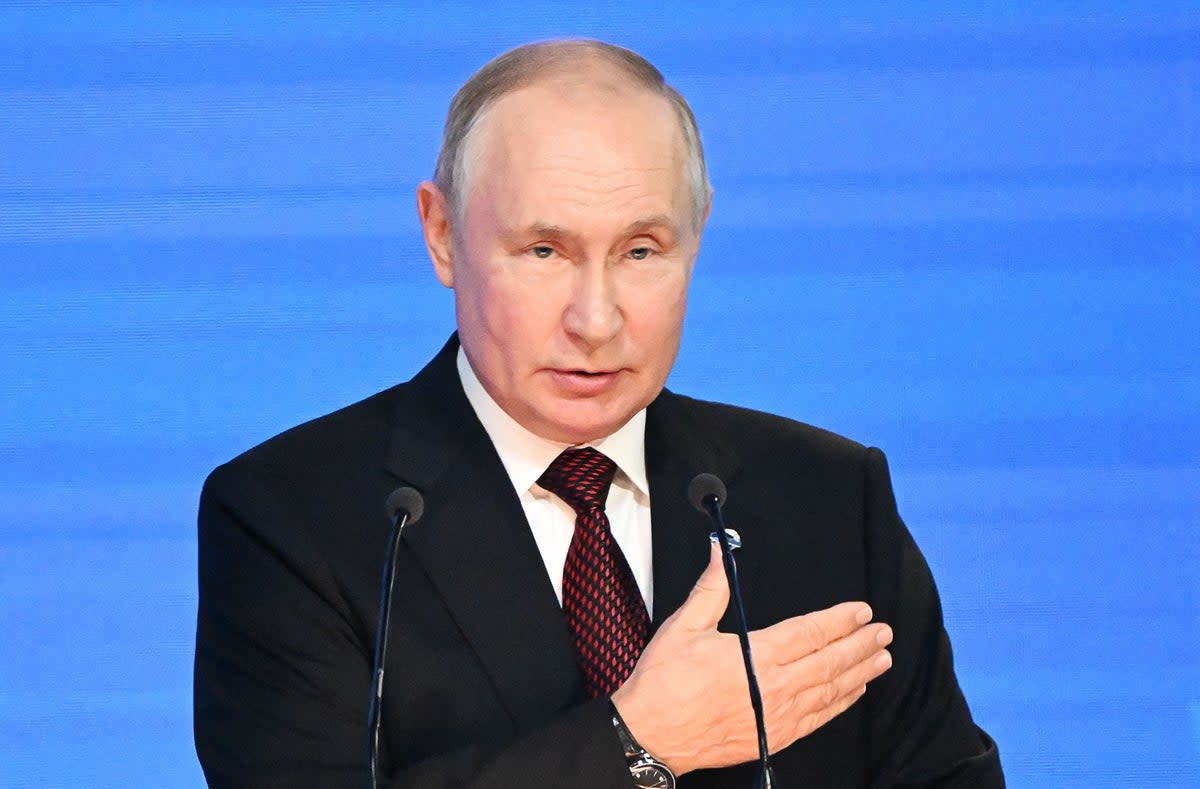Putin could restart banned nuclear tests as Russian parliament ordered to review treaty

Vladimir Putin has given Russian lawmakers 10 days to find how best to revoke Moscow’s ratification of a critical nuclear treaty which bans Russia from testing atomic weapons shortly after he suggested the possibility of resuming such testing.
The chair of the State Duma (lower house of parliament) Vyacheslav Volodin and other parliament heads laid out a deadline for Russian lawmakers to study the de-ratification of the Comprehensive Nuclear Test Ban Treaty (CTBT) option until 18 October, a statement from the Duma read.
Mr Volodin said revoking the ratification on testing nuclear weapons will be in Russia’s national interest as he discussed the matter with parliamentary leaders on Monday.
If revoked, Russia will signal a warning to the US that Moscow can fundamentally change the assumptions of post-Cold War nuclear planning.
This comes just four days after Mr Putin said that Russia’s nuclear doctrine – which determines the conditions in which he would press the nuclear button – did not need updating.
But he added that Russia could look at revoking ratification of the significant nuclear treaty to bring it into line with the United States, which has signed but not ratified the pact. The US has previously said Russia’s pulling out from the treaty will endanger "the global norm" against nuclear test blasts.
In a U-turn from Mr Putin’s remarks on Friday, his envoy to the Comprehensive Nuclear Test Ban Treaty Organization (CTBTO) said Moscow would revoke its ratification of the pact.
Western security analysts have said such a step from Moscow will be a reminder that it still possesses the world’s largest nuclear arsenal at a time when it is locked in a standoff with the West over Ukraine.
If Russia goes ahead with a nuclear test, it could encourage others such as the US or China to retaliate in a similar test and renew a fresh wave of nuclear arms race between the global superpowers.
These nations have not carried out nuclear tests after the Soviet Union collapse in 1991.
Russia’s actions have sparked concern, said Robert Floyd, head of the Comprehensive Nuclear-Test-Ban-Treaty Organization. He added that he is in touch with senior Russian officials to make the case for continued ratification, something he said was in the interest of humanity as a whole.
Mr Floyd had requested a meeting with "key leaders" in Moscow as soon as possible, he said.
"The CTBTO operates a global monitoring system which can detect a nuclear test explosion anytime, anywhere," he said in a statement.
"Banning nuclear testing remains essential to preventing the spread of nuclear weapons and to safeguarding current and future generations from the harmful effects of explosive nuclear testing."
The de-ratification move can take “Russia and the world backward to a dangerous era of tit-for-tat nuclear threats”, said Daryl Kimball, executive director of the Washington-based Arms Control Association.
